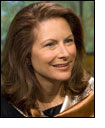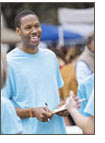
A few years ago, my mom passed away after having lived a good life. Dad asked us to help him sort through my mother’s possessions. Though we knew this task was coming, it was unexpectedly hard. That was not because my mother had a lot of things, but because many things had memories associated with them. Most things weren’t precious; they had been useful for her lifestyle but weren’t needed any longer. But a surprising number of her possessions required thought and prompted conversation among her children. What did we want to make sure her grandchildren received from her to carry forward into their own lives — not just of their grandmother’s things, but also of her identity, her struggles, her hard-won wisdom?
The twenty-first century church is facing a similar responsibility. Our generation has inherited the sizable holdings of a church that thrived in its time. But much about that church is gone. In a great number of congregations, we no longer expect to see packed pews in worship and wall-to-wall children in Sunday school. We no longer expect that most Americans will memorize scripture or sing the classic hymns by heart. And we no longer expect to hear the church’s voice of justice and morality received with authority in our culture. That particular life of the church has passed on. Now it falls to our generation to sort through what we’ve received.
But rather than being a burden, it’s a sacred privilege to consider together what we’ve inherited. Because everything is packed with memories, it isn’t easy. Yet we know that if we keep everything, we wouldn’t be honoring our mother church’s life. We’d just be building a museum.
What’s required of our generation is discernment. What worth does each item have in the story it tells, the values it reflects, the memories it carries? And what are the things that once were useful, but now could either be kept or let go?
We are hardly the first to be required to do this work of discernment. This is the same sorting that many Christians in the past have had to do, beginning with the very first believers. The early Christians did careful theological sifting within the community. They sorted through values and practices in worship and everyday life. Avoiding meat offered to idols — not essential. Circumcision – amazingly enough, since it was a sign of the covenant — not essential. But Christ, and him crucified — essential. Should be obvious to us, right? But it wasn’t to them.
In the end, there will inevitably be things over which we disagree. It has always been that way in Christ’s family. From the beginning in the early church and over the course of Christian history, believers have argued vehemently over a myriad of issues: what is permissible to eat and drink, from pork to Prohibition; what clothing and hairstyles befit Christians, from veils on women’s heads to jeans in church; what music to sing and what language to speak in worship, from Gregorian chants to pipe organs and praise bands; from speaking in tongues to the Latin Mass; how to raise funds for the poor and pay for leaders’ expenses, from Paul’s appeals to pew rentals and capital campaigns; and much, much more. Among Christians around the world today, the range of beliefs, behaviors, and worship styles is staggering.
The wonder is that we agree on so much of what we received from our mother church. Yet perhaps it should not surprise us. It is the same, strong heart of Christ that for millennia has pumped lifeblood throughout his body: the tenacious love of God, the wondrous grace of Jesus Christ, the sanctifying work of the Holy Spirit, and the building up of community — all attested to by the enduring word of scripture. These are the essential things that shall endure forever.
Christine Chakoian is pastor of First Presbyterian Church in Lake Forest, Illinois. This article is adapted from her new book Cryptomnesia: How a Forgotten Memory Could Save the Church (Abingdon Press, 2014) and used by permission of the publisher. The book is available through Cokesbury and Amazon.






No comments:
Post a Comment